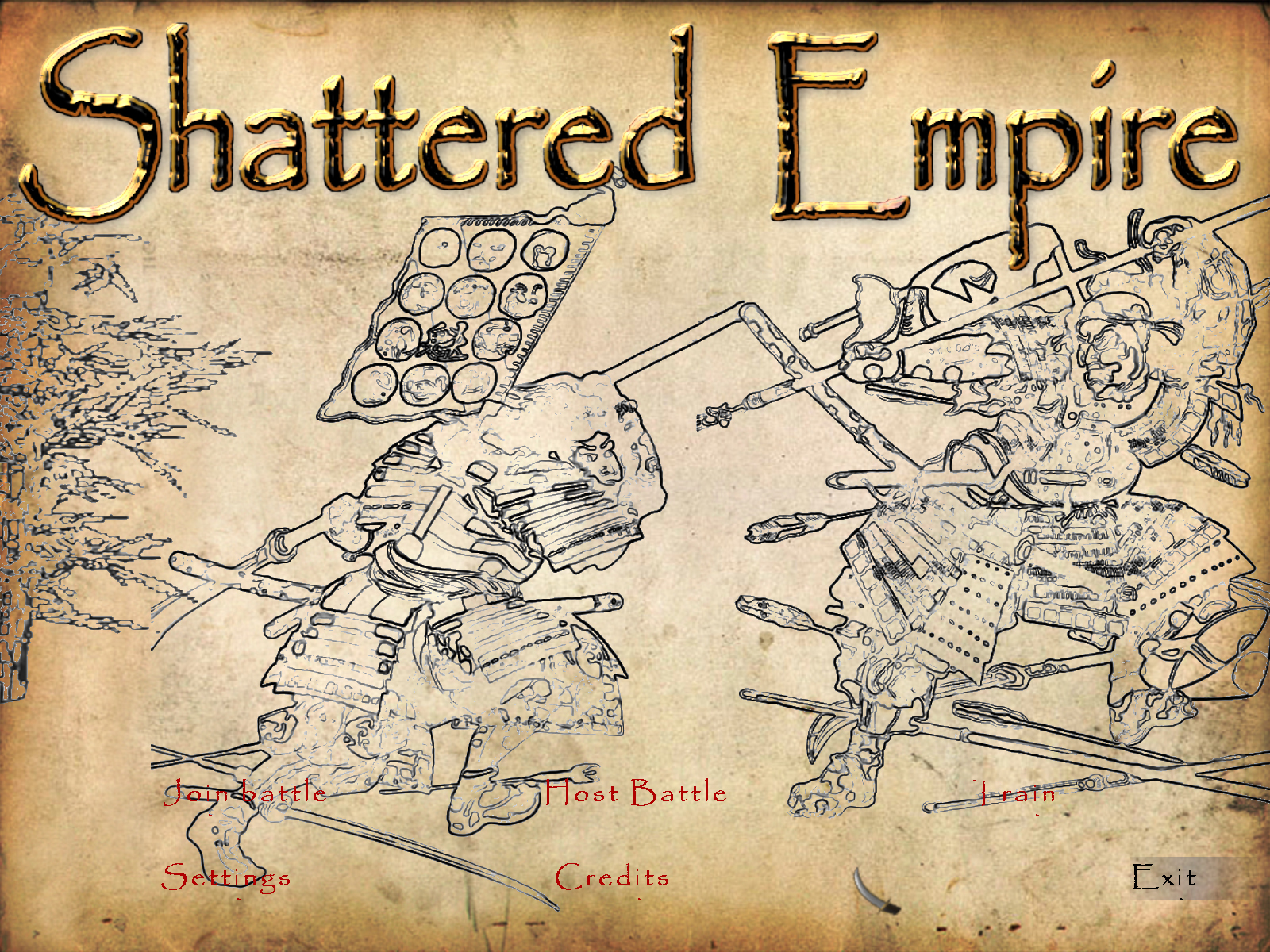History has always been a fascinating journey through the triumphs and tragedies of human civilization. Among the most captivating tales are those of empires that once ruled the world, only to crumble into dust. The term "shattered empire" perfectly encapsulates this phenomenon, where once-mighty powers meet their inevitable downfall. In this article, we’ll dive deep into the stories behind these fallen empires, uncovering the reasons behind their collapse and the lessons they leave for future generations.
Picture this: massive armies, sprawling territories, and leaders who thought they were invincible. Yet, history has repeatedly shown us that no empire is immune to the forces of time and change. From ancient civilizations to modern superpowers, the concept of a shattered empire serves as both a cautionary tale and a source of inspiration. So, let’s grab a cup of coffee and take a journey through the ages to explore what really happened to these great powers.
But before we dive into the nitty-gritty details, let’s set the stage. The idea of a "shattered empire" isn’t just about physical destruction—it’s also about the collapse of ideals, the erosion of trust, and the failure of leadership. These elements combined can bring even the strongest empires to their knees. Now, let’s get started and uncover the secrets of history’s most famous fallen empires.
- Shacarri Richardson Gender A Deep Dive Into Her Journey And Identity
- Dilbert Images Your Ultimate Guide To The Worlds Favorite Office Comic
Table of Contents
- Introduction to Shattered Empire
- Biography of Key Figures in Shattered Empires
- Key Causes of Empire Collapse
- Economic Factors in the Fall of Empires
- Military Failures and Their Impact
- Social Instability and Its Role
- Environmental Challenges Faced by Empires
- Lessons from Modern Shattered Empires
- A Historical Perspective on Shattered Empires
- Conclusion: What Can We Learn?
Introduction to Shattered Empire
Let’s face it, history is full of ups and downs, but nothing quite compares to the drama of a shattered empire. Imagine the Roman Empire, once the center of the known world, reduced to ruins. Or the Ottoman Empire, a powerhouse for centuries, crumbling under the weight of its own bureaucracy. These stories aren’t just about loss—they’re about the complex interplay of factors that lead to downfall.
In this section, we’ll explore the concept of a shattered empire in more detail. Why do some empires last for centuries while others fall apart in a matter of decades? What common threads tie these stories together? By understanding the root causes of imperial collapse, we can gain valuable insights into the nature of power and its limitations.
- Christina Aguilera Body The Iconic Journey Of Power And Confidence
- Why Rampb Singer Cassie Is The Voice Of Modern Soul
So, buckle up because we’re about to embark on a wild ride through history, filled with intrigue, betrayal, and a whole lot of drama. And trust me, it’s going to be an unforgettable journey!
Biography of Key Figures in Shattered Empires
Every great empire has its heroes and villains, and understanding the people behind the scenes can shed light on the reasons for their downfall. In this section, we’ll take a closer look at some of the key figures who played pivotal roles in the rise and fall of these empires.
Name: Julius Caesar
Role: Roman General and Statesman
Born: 100 BC
Died: 44 BC
| Full Name | Julius Caesar |
|---|---|
| Birthplace | Rome, Italy |
| Notable Achievements | Conquered Gaul, Crossed the Rubicon, Dictator of Rome |
| Cause of Death | Assassination |
Julius Caesar’s story is one of ambition and betrayal. His rise to power marked the beginning of the end for the Roman Republic, paving the way for the Roman Empire. However, his assassination by senators who feared his growing influence ultimately sealed his fate.
Other Key Figures
- Suleiman the Magnificent: The longest-reigning Sultan of the Ottoman Empire, known for expanding its borders but also setting the stage for its eventual decline.
- Napoleon Bonaparte: The French Emperor whose military campaigns reshaped Europe but ultimately led to his own downfall.
- Catherine the Great: The Empress of Russia who expanded her empire but faced internal struggles that weakened its foundation.
Key Causes of Empire Collapse
So, what exactly causes an empire to crumble? The answer isn’t as simple as you might think. While external threats like invasions and wars certainly play a role, internal factors often contribute just as much, if not more, to an empire’s downfall. Let’s break it down:
Political Instability
When leadership is weak or corrupt, it can lead to chaos within the empire. Think about the Byzantine Empire, where constant power struggles and coups weakened its ability to defend itself against external threats.
Economic Decline
Money makes the world go round, and when an empire runs out of resources, it’s only a matter of time before it collapses. The Roman Empire, for example, faced severe inflation and economic hardship, which contributed to its eventual fall.
Social Unrest
People power is a force to be reckoned with. When citizens are unhappy and restless, it can lead to revolts and uprisings that destabilize an empire. The French Revolution is a prime example of how social unrest can bring down even the most powerful regimes.
Economic Factors in the Fall of Empires
Money talks, and when it stops talking, empires fall silent. Economic factors have been a major contributor to the downfall of many great powers throughout history. Let’s take a closer look at how financial mismanagement and external pressures can lead to the collapse of an empire.
For instance, the Spanish Empire, once the wealthiest in the world, saw its fortunes decline due to overspending on wars and reliance on silver imports from the Americas. Similarly, the British Empire faced economic challenges in the 20th century, leading to the loss of its colonies and global influence.
Key Economic Challenges
- Inflation: A persistent problem that erodes the value of currency and destabilizes economies.
- Debt: Accumulating debt can cripple an empire’s ability to fund its military and infrastructure.
- Trade Imbalances: When imports exceed exports, it can lead to a drain on resources and weaken an empire’s economy.
Military Failures and Their Impact
Military might is often seen as a measure of an empire’s strength, but even the most powerful armies can falter. In this section, we’ll explore how military failures have contributed to the downfall of empires.
Take the Mongol Empire, for example. While its military prowess was unmatched during its peak, internal divisions and external pressures eventually weakened its ability to maintain control over its vast territories. Similarly, the Soviet Union’s costly military campaigns, such as the invasion of Afghanistan, drained its resources and contributed to its collapse.
Lessons from Military History
- Overextension: Expanding too quickly can stretch military resources thin, making it difficult to defend all territories effectively.
- Technological Lag: Failing to keep up with advancements in military technology can leave an empire vulnerable to superior forces.
- Morale: Low morale among troops can lead to defeat, even against less formidable opponents.
Social Instability and Its Role
Social instability is like a ticking time bomb waiting to explode. When people lose faith in their leaders and the systems that govern them, chaos ensues. This section will delve into how social unrest has played a role in the collapse of empires.
The Qing Dynasty in China faced significant social upheaval in its final years, with peasant revolts and internal dissent weakening its grip on power. The same can be said for the Austro-Hungarian Empire, where ethnic tensions and nationalist movements contributed to its eventual dissolution.
Factors Contributing to Social Instability
- Inequality: Economic and social disparities can breed resentment and unrest among the populace.
- Corruption: Perceived corruption among leaders can erode public trust and lead to protests and uprisings.
- Education: A lack of access to education can perpetuate cycles of poverty and discontent.
Environmental Challenges Faced by Empires
Climate change and natural disasters aren’t just modern problems—they’ve been around for centuries, wreaking havoc on empires throughout history. In this section, we’ll examine how environmental challenges have contributed to the fall of great powers.
The Mayan civilization, for instance, is believed to have collapsed due to a combination of drought and deforestation. Similarly, the Byzantine Empire faced environmental challenges such as earthquakes and plagues that weakened its infrastructure and population.
Environmental Factors to Consider
- Drought: Extended periods of dry weather can devastate agriculture and lead to famine.
- Plagues: Diseases like the Black Death can decimate populations and destabilize societies.
- Deforestation: Overuse of natural resources can lead to ecological collapse and loss of arable land.
Lessons from Modern Shattered Empires
History repeats itself, and the lessons of the past can provide valuable insights for the present and future. In this section, we’ll explore how modern empires have learned—or failed to learn—from the mistakes of their predecessors.
The collapse of the Soviet Union in the late 20th century serves as a stark reminder of the dangers of centralized control and economic mismanagement. Similarly, the decline of the British Empire highlights the importance of adapting to changing global dynamics and respecting the sovereignty of former colonies.
What Can We Learn?
- Adaptability: Empires must be willing to adapt to changing circumstances to survive.
- Respect for Others: Treating other nations and cultures with respect can prevent conflicts and foster cooperation.
- Economic Prudence: Sound financial management is crucial for maintaining stability and growth.
A Historical Perspective on Shattered Empires
Putting it all together, the history of shattered empires offers a fascinating glimpse into the cyclical nature of power and its limitations. By examining the rise and fall of these great powers, we can gain a deeper understanding of the forces that shape our world.
As we look to the future, it’s important to remember that no empire is invincible. The same forces that brought down the mighty empires of the past can just as easily affect the superpowers of today. The key lies in learning from history and applying those lessons to build a better, more sustainable future.
Conclusion: What Can We Learn?
In conclusion, the concept of a shattered empire serves as a powerful reminder of the fragility of power and the importance of good governance. From the Roman Empire to the Soviet Union, the stories of these fallen powers offer valuable lessons for leaders and citizens alike.
So, what’s the takeaway? Empires may rise and fall, but the principles of adaptability, respect, and economic prudence remain constant. By embracing these values, we can work towards a world where power is used wisely and for the greater good.
Now it’s your turn! Share your thoughts in the comments below or explore more articles on our site to continue your journey through history. Who knows, you might just uncover the next great story of a shattered empire!
- Secrets Of A Gal Wife Unlocking The Magic Of Modern Relationships
- Scar On Nose A Comprehensive Guide To Understanding Treating And Embracing Your Unique Story


